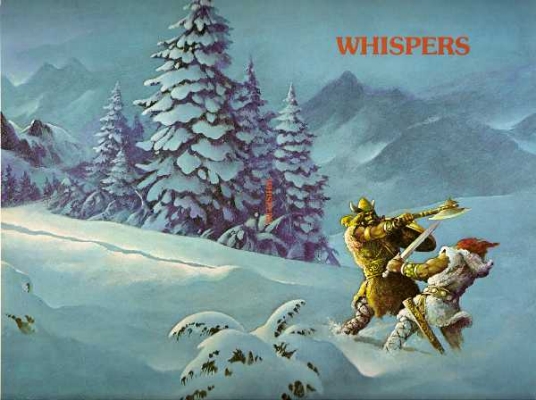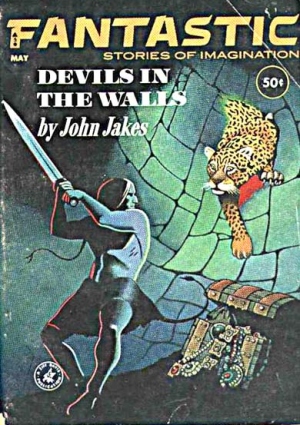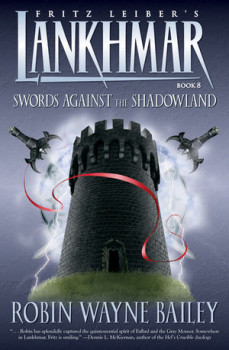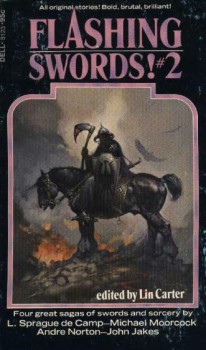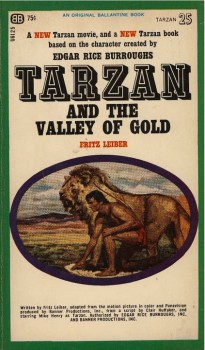Bob’s Books – Shelfie #8 (McKiernan, Watt-Evans, Leiber, Bischoff, Rosenberg)
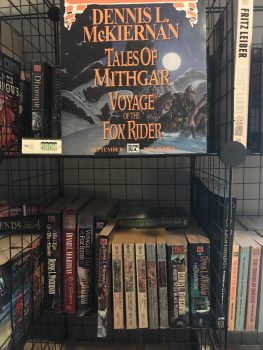 It’s installment number seven in Bob’s Books Shelfie series. Links to the prior shelfie posts can be found at the end of this one; including some prior fantasy shelves. If you’re new to this column, I posted shelfies of over a thousand of my books, in the r/bookshelf subreddit. The mods got too annoying for me, and I quit the group.
It’s installment number seven in Bob’s Books Shelfie series. Links to the prior shelfie posts can be found at the end of this one; including some prior fantasy shelves. If you’re new to this column, I posted shelfies of over a thousand of my books, in the r/bookshelf subreddit. The mods got too annoying for me, and I quit the group.
But with each shelfie I posted info on the books/authors show, so I’m bringing them over to Black Gate. Hopefully you’ll see some interesting stuff.
DENNIS L. MCKIERNAN
I have been a fantasy fan since junior high. This is my Dennis L. McKiernan shelf – double-layered.
McKiernan used to live here, and he let me come out and visit him at his house. Signed my books, talked about other authors, and talked RPGs (he was an ICE guy – I played D&D). He’s a really cool guy.
Back in the seventies, he had a terrible accident while riding a bike (or maybe a motorcycles. I forget). He was bedridden for many months. So, he decided to write a sequel to the Moria part of The Lord of the Rings. The Tolkien people, after he finished it, said “Nope. You can’t do that.” So he made it into his own world of Mithgar.
Doubleday told him to write a trilogy ala The Lord of the Rings. So, he wrote The Iron Tower Trilogy. It did well, and that ‘Moria sequel’ was released as The Silver Call Duology. McKiernan went on to a long career, with many more Mithgar books, and a couple other short series’.
If you like Tolkien, McKiernan’s Mithgar is as close in style and setting, as anyone has yet written. And he’s clearly a huge Tolkien fan. I like The Silver Call Duology, and the novel, Dragondoom, the most.
The Iron Tower Trilogy is the heart of the series. That’s good, too. McKiernan is definitely a good read for fans of The Lord of the Rings. Back in college, I found his number in the phone book, called him up, and he invited me out (he lived in Columbus, OH, back then. We talked fantasy and RPGs. He’s a really nice guy (lives out in the warmer West, now).
